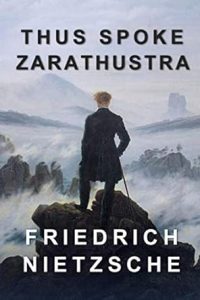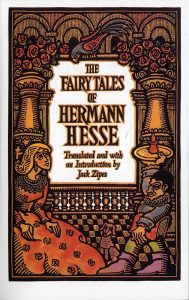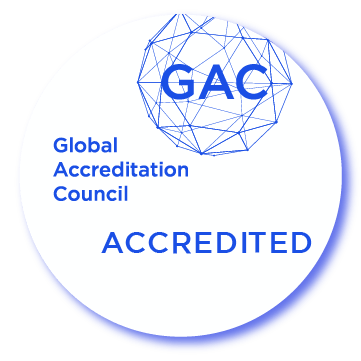
Dates: Noted below on each individual session. All calls are held from 10:00 AM to 11:30 AM Pacific Time on the second Tuesday each month.
Format: Live webinars on Zoom. All sessions will be recorded and will be posted on this page for access for registered students as well as on our YouTube channel.
Zoom Information: Once you have registered for this program, please ensure you are signed in to your account and return to this page to access the “Get Your Zoom Link” lesson. You must register separately on Zoom to get your participation codes and reminder emails.
Faculty: Various
Academic Credit: Bachelors- 3 credits, Masters – 3 credits; Doctoral – 3 credits
Price: FREE as Audit; Per Credit Pricing for BA, MA, PhD
 At the heart of the world wisdom traditions are books that distill the essence of the teachings of the masters down through the ages. Many have no authors, some are compilations over long periods of time, others reflect teachings of masters who themselves never wrote a word. Socrates and Jesus never wrote any books, for instance, but Plato wrote his Dialogues recalling his memory of what Socrates said and the Gospels recount the life of Jesus many decades after Jesus had gone. Other books have legendary authors but appear to be compilations heavily redacted over many centuries. Some books are considered “God’s word” such as the Bible or the Koran and have endured for millennia inspiring countless millions of believers. Others remain obscure and speak deeply symbolic truths hidden within the layers of the language in the text itself. Still others express the essence of a tribal tradition on the brink of extinction and are valued for what is on the verge of being lost. Great books continue to be written by individuals alive today.
At the heart of the world wisdom traditions are books that distill the essence of the teachings of the masters down through the ages. Many have no authors, some are compilations over long periods of time, others reflect teachings of masters who themselves never wrote a word. Socrates and Jesus never wrote any books, for instance, but Plato wrote his Dialogues recalling his memory of what Socrates said and the Gospels recount the life of Jesus many decades after Jesus had gone. Other books have legendary authors but appear to be compilations heavily redacted over many centuries. Some books are considered “God’s word” such as the Bible or the Koran and have endured for millennia inspiring countless millions of believers. Others remain obscure and speak deeply symbolic truths hidden within the layers of the language in the text itself. Still others express the essence of a tribal tradition on the brink of extinction and are valued for what is on the verge of being lost. Great books continue to be written by individuals alive today.
New Recordings can be accessed on YouTube Please also join our discussion group on the UbiVerse.
What makes a Great Book great? Intro to Ubiquity’s Free Great Books Live Course:
Faculty: Each year, Dr. Jim Garrison and Dr. Gyorgyi Szabo choose six books they consider “great” and examine each one. Guest lecturers with specific expertise were invited to participate either in dialogue with Dr. Garrison and Dr. Szabo, or as lead lecturers. This course is available for Internal Online Independent Study.
Learning Objectives
- To understand the qualities that distinguish a literary work as a “Great Book.”
- To reflect upon the challenges framed by authors in ancient times in light of current global crises.
- To grapple with deep issues common to all humanity through active discussion, web forum postings, and/or paper assignments.
- To compare the major themes of the books studied.
Academic Credit: Students taking the course for credit should submit a post paper at the end of each year which includes six books. Bachelors level post-papers are 6-9 pages in length, Masters level post-papers are 10-15 pages in length, and Doctoral level are 20-25 pages. Papers should be written in APA style, with footnotes and bibliography. Papers should demonstrate the student’s knowledge of the books for the course and discuss how the content has contributed to the student’s understanding of themselves and to their spiritual growth. Artistic expression is welcomed.
The rules guiding our assignment collection and grading process can be found here: Ubiquity University Grading Policy
The following books will be examined in 2024
January 9 and February 13
Jim Garrison, PhD, on Thus Spoke Zarathustra by Friedrich Nietzsche
Thus Spoke Zarathustra was Nietzche’s masterwork, writing after the crushing end to a love affair he had when he was 38. In his despair, he traveled to northern Italy to reside by a lake to rest and recuperate his spirit. One day as he was walking, a voice sounded loudly in his mind announcing that he was Zarathustra and had a message. Nietzsche rushed back to his cabin and in the next two weeks wrote out the first half of Thus Spoke Zarathustra. In it, Nietzsche develops the theme of the ubermensch, the “superman,” not as some warrior hero going forth to battle but as someone who has matured enough to become as a child, dancing, laughing and playfully engaging with the mysteries of life.
Jim Garrison, PhD is the President and Founder of Ubiquity University. He has been studying great books since childhood as the son of missionaries to China and Taiwan where he was able to delve into eastern spirituality, particularly Buddhism and Taoism. His double Masters degree in the History of Religion and Christology at Harvard University and his doctorate on a Jungian analysis of ancient Judeo-Christian apocalyptic literature at Cambridge University enabled him to study texts across the spectrum of Axial religions and wisdom traditions. He has spent a lifetime studying great books from east and west, both ancient and modern, sacred and secular.
March 12 and April 9
Renn Butler on The Way of the Psychonaut: Encyclopedia for Inner Journeys (2019) By Stanislav Grof, M.D., PhD.
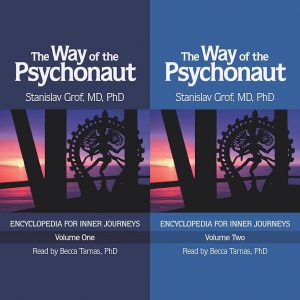 One of the most important books ever written about the human psyche and the spiritual quest, The Way of the Psychonaut, is a tour de force through the worlds of psychotherapy, maps of the psyche and the roots of trauma, archetypes and sexuality, karma and reincarnation, spiritual emergency and transpersonal experiences, psychospiritual death and rebirth, art, artists, and higher creativity. After many years of research and an influx of revolutionary data, Grof eventually came to the conclusion that a radical overhaul is needed in our understanding of the psyche. “The proud edifice of traditional psychiatry, with its mechanistic materialistic philosophy, is a giant on clay legs that stands in the way of genuine understanding of the human psyche and has a damaging effect on many people diagnosed as mentally ill.” Written in his late eighties, at the height of his magnificent career, The Way of the Psychonaut is possibly Grof’s greatest contribution. The commanding breadth and depth of his knowledge is astounding, the tone of his writing easy and accessible, and his narratives brightened with amusing anecdotes, brilliant case studies, and intriguing personal accounts. As one of the fathers of psychedelic-assisted psychotherapy, its most experienced practitioner, and deeply deserving of a Nobel Prize in medicine, in these volumes, Grof has successfully unveiled a new and sweeping paradigm in self-exploration and healing. The vast and practical knowledge in this book is sure to be an invaluable and treasured resource for all serious seekers.
One of the most important books ever written about the human psyche and the spiritual quest, The Way of the Psychonaut, is a tour de force through the worlds of psychotherapy, maps of the psyche and the roots of trauma, archetypes and sexuality, karma and reincarnation, spiritual emergency and transpersonal experiences, psychospiritual death and rebirth, art, artists, and higher creativity. After many years of research and an influx of revolutionary data, Grof eventually came to the conclusion that a radical overhaul is needed in our understanding of the psyche. “The proud edifice of traditional psychiatry, with its mechanistic materialistic philosophy, is a giant on clay legs that stands in the way of genuine understanding of the human psyche and has a damaging effect on many people diagnosed as mentally ill.” Written in his late eighties, at the height of his magnificent career, The Way of the Psychonaut is possibly Grof’s greatest contribution. The commanding breadth and depth of his knowledge is astounding, the tone of his writing easy and accessible, and his narratives brightened with amusing anecdotes, brilliant case studies, and intriguing personal accounts. As one of the fathers of psychedelic-assisted psychotherapy, its most experienced practitioner, and deeply deserving of a Nobel Prize in medicine, in these volumes, Grof has successfully unveiled a new and sweeping paradigm in self-exploration and healing. The vast and practical knowledge in this book is sure to be an invaluable and treasured resource for all serious seekers.
Renn Butler studied with Stanislav Grof and Richard Tarnas at the Esalen Institute in California beginning in 1980 and certified as a Holotropic Breathwork® facilitator in 1989, recertifying in Grof® Breathwork in 2023. He offers workshops in British Columbia and abroad, as well as archetypal astrology consultations with clients around the world. Renn’s first book, Pathways to Wholeness, about astrology and psychedelic experiences, was published in 2014, followed by The Archetypal Universe in 2018, which focuses on dreams, and The Astrology of Love and Relationships in 2022 about relationships. His seven-month online course in Archetypal and Holotropic Astrology has received enthusiastic reviews. Renn received his PhD in Archetypal Astrology and Transpersonal Psychology from Ubiquity University in 2022 and is the Director of the new Grof Studies Graduate Programs through Ubiquity. He also cofounded the Archetypal News Network (ANN) which offers timely videos in Tarnas’ approach to archetypal astrology. He worked part time as a health care worker with physically, mentally, and emotionally challenged adults for over thirty years and lives in Victoria, B.C.
May 14 and June 11
Linda White on One Nation Under Blackmail by Whitney Webb
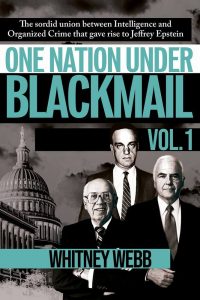 One Nation Under Blackmail has been described as an expose’ on how the world actually works. Volume I traces the merging of organized crime and the intelligence networks through the rise of the global arms race, international drug trade and use of sexual blackmail to influence global political leaders. Volume II presents Jeffrey Epstein as the tip of the iceberg of a global network that has exerted influence over institutions of banking, technology, academia and politics. Researcher and investigative journalist Whitney Webb skillfully weaves a wealth of information into a cohesive narrative that invites the reader to discern truth from conspiracy.
One Nation Under Blackmail has been described as an expose’ on how the world actually works. Volume I traces the merging of organized crime and the intelligence networks through the rise of the global arms race, international drug trade and use of sexual blackmail to influence global political leaders. Volume II presents Jeffrey Epstein as the tip of the iceberg of a global network that has exerted influence over institutions of banking, technology, academia and politics. Researcher and investigative journalist Whitney Webb skillfully weaves a wealth of information into a cohesive narrative that invites the reader to discern truth from conspiracy.
Linda White has specialized for forty years in recovery from trauma, grief/loss, addictive tendencies, and stress-related illnesses. Her approach integrates integral, Jungian, and transpersonal psychology, 12 step recovery and evolutionary spirituality. Her doctoral research examines the impact of generational and
collective trauma on societal wellbeing. Of particular interest is the influence of war trauma on collective wellbeing; the societal implications of UAP disclosure and recovery and the integration needs of experiencers. As a founding member of Cosmic Connectors, she brings awareness and healing to what has been denied within culture.
July 9 and August 13
Randy Cleveland, RPP on The Age of Resilience: reimagining existence on a rewilding earth (2022) by Jeremy Rifkin
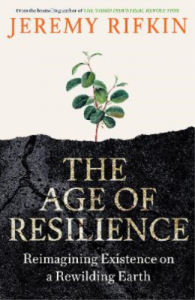 Climate change, along with the increasing scale and frequency of extreme weather, pandemics, species extinction, human inequality and distrust of the ‘other’, are among the many cascading consequences of convulsing capitalism and the exhaustion of rational consciousness. Many technical and political pathways of reparation, reformation and transformation have been proposed. Among them is the ‘Green New Deal’, which has been either ratified or recommended by the UN, the European Union, China, the United States, Canada, and others. Jeremy Rifkin— an academic, consultant, and activist—is often either the author or the inspiration behind these long-range, broad-scope plans. The consolidation of his life’s work, The Age of Resilience, explores the linkages between punctuated civilizational transformation, and the socio-political organization of the economy and its communication, transportation, and energy infrastructures. He proposes that the organizing principle of mechanical ‘efficiency’ must now be transcended by the principle of living ‘resilience’ in complex adaptive socio-economic systems, founded on deep empathy and biophilia. Rather than isolation among things, he aligns with a glocalized network of processes and flows. Rifkin is listed among the world’s most influential social thought leaders.
Climate change, along with the increasing scale and frequency of extreme weather, pandemics, species extinction, human inequality and distrust of the ‘other’, are among the many cascading consequences of convulsing capitalism and the exhaustion of rational consciousness. Many technical and political pathways of reparation, reformation and transformation have been proposed. Among them is the ‘Green New Deal’, which has been either ratified or recommended by the UN, the European Union, China, the United States, Canada, and others. Jeremy Rifkin— an academic, consultant, and activist—is often either the author or the inspiration behind these long-range, broad-scope plans. The consolidation of his life’s work, The Age of Resilience, explores the linkages between punctuated civilizational transformation, and the socio-political organization of the economy and its communication, transportation, and energy infrastructures. He proposes that the organizing principle of mechanical ‘efficiency’ must now be transcended by the principle of living ‘resilience’ in complex adaptive socio-economic systems, founded on deep empathy and biophilia. Rather than isolation among things, he aligns with a glocalized network of processes and flows. Rifkin is listed among the world’s most influential social thought leaders.
Randy Cleveland, RPP, with degrees in Human Ecology, Architecture, and Urban/Regional Planning as well as senior management experience at all levels of Canadian government, has worked to bring complexity science and integral consciousness into the everyday life of civil society. His focus has been leading creative professional teams in the policy development, planning design, construction, and operation of regenerative infrastructures and landscapes in primarily indigenous communities in the Canadian and Russian North. As Senior Advisor to Canada’s Ambassador of Circumpolar Affairs to the Arctic Council, he coordinated their intervention on climate change at the World Summit on Sustainable Development in Johannesburg, SA. Randy is a doctoral student at Ubiquity focusing on how to co-create archetypally with the emerging future in a world on the edge of radical regeneration.
September 10 and October 8
Michelle Blair, Ph.D on The Earth Has a Soul: C.G. Jung on Nature, Technology & Modern Life. Edited by Meredith Sabini, Ph.D.
 This book is crafted using original selections of C.G. Jung’s work edited by Meredith Sabini. While never losing sight of the rational, cultured mind, Jung speaks for the “natural mind,” the source of the evolutionary experience and accumulated wisdom of our species. Through his own example, Jung shows how healing our own living connections with Nature contributes to the whole.
This book is crafted using original selections of C.G. Jung’s work edited by Meredith Sabini. While never losing sight of the rational, cultured mind, Jung speaks for the “natural mind,” the source of the evolutionary experience and accumulated wisdom of our species. Through his own example, Jung shows how healing our own living connections with Nature contributes to the whole.
Michelle Blair, Ph.D., is a Texas native who has been researching the concept of light for decades. A former lighting designer with a master’s degree in architectural lighting from the Parsons School of Design, Michelle redirected her focus to discover the more numinous aspect of light found in Nature. She earned her doctorate from The Wisdom School at Ubiquity University. Her dissertation explored the Cowgirl as an archetypal image and a teleological force of the Goddess principle who shatters societal constraints to empower herself from a soulful and instinctual perspective. Michelle’s studies have included the sacred books of many mystical traditions, including the Kabbalah, as well as Jungian thought. She relies on her dreams, intuition and instincts to help guide her work.
November 12 and December 10
Ludwig Max Fischer , Ph.D on Fairy Tales by Hermann Hesse
A collection of twenty-two fairy tales by the Nobel Prize-winning novelist, most translated into English for the first time, show the influence of German Romanticism, psychoanalysis, and Eastern religion on his development as an author.“Sometimes lush and lyrical, sometimes in the simple language of the parable, these tales elaborate Hesse’s concerns with mortality, the unity of life and the isolation of the artist. Quirky and evocative, Hesse’s fairy tales stand alone, but also amplify the ideas and utopian longings of such counterculture avatars as Siddhartha and Steppenwolf.”
 Ludwig Max Fischer , Ph.D . is a now retired university professor of German Language and Literature .His academic research and publications focus on theory and pedagogy of second language acquisition, intercultural communication ,comparative mythology, the Age of Goethe, German literature in exile and on translations of unpublished prose and poetry by Hermann Hesse available in two books :
Ludwig Max Fischer , Ph.D . is a now retired university professor of German Language and Literature .His academic research and publications focus on theory and pedagogy of second language acquisition, intercultural communication ,comparative mythology, the Age of Goethe, German literature in exile and on translations of unpublished prose and poetry by Hermann Hesse available in two books :
“The Seasons of the Soul “ and “ The Seasons of Life” . He is currently working on a third book dealing with poetry and letters of Hesse . “The Seasons of the Heart “. He lives in Victoria, BC, Canada.
—–
Our shopping cart is simple and easy to understand. If you do not have a user account, you will be able to create one upon purchase. Save your username and password as you will need it to login to access course materials later. For more detailed, step-by-step instructions you can review our tutorial How to Purchase a Course. Again, if you experience any issues, please email Veronica Saldias at registrar@ubiquityuniversity.org.
Information about how we process refund or cancellation requests can be found here: Refund and Cancellation Policy
Archived Webinar Contact Information:
Archived Webinars are completely on-demand for your convenience. If you have questions or require additional assistance, you may click the “Chat” button on the lower, left-hand side of the screen, and submit your question. Our help desk will respond as soon as possible.

